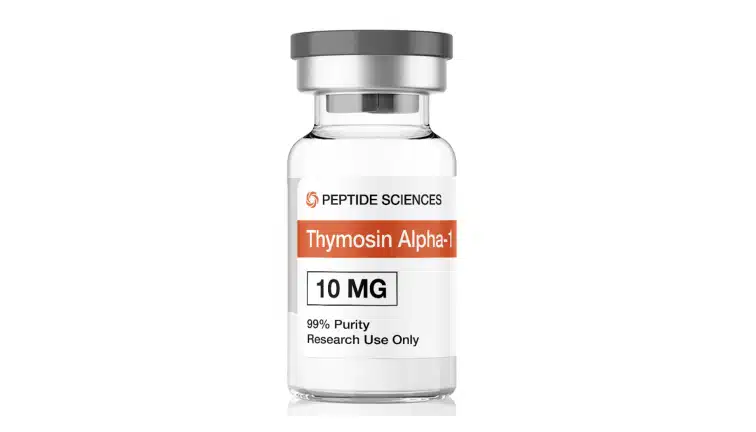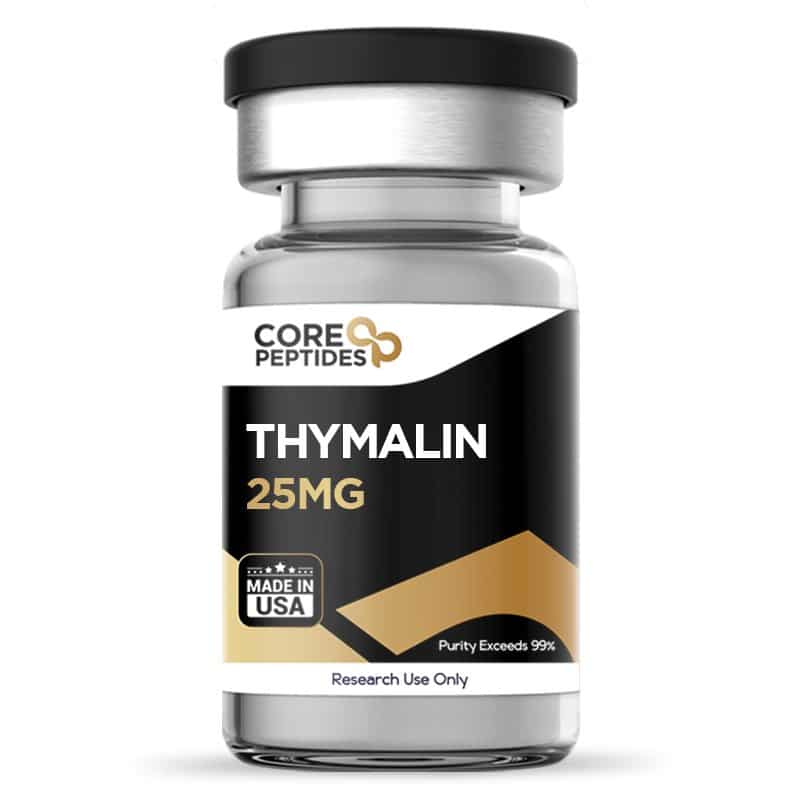Thymalin, a peptide derived from the thymus gland, is gaining attention for its potential to impact various biological processes, particularly those related to immune regulation, cellular repair, and age-associated molecular changes.
While investigations into thymic peptides, in general, have historically underscored their role in immunomodulation, more recent research highlights Thymalin’s complex interactions at the cellular and systemic levels.
This article explores the theoretical research implications of Thymalin across scientific domains, including immunology, regenerative biology, and longevity science.
By analyzing the peptide’s suggested impact on immune regulation, cellular proliferation, and its hypothesized role in age-associated molecular pathways, this paper presents an overview of how Thymalin might serve as a representative molecule for future scientific exploration.
Introduction
The study of thymic peptides, particularly Thymalin, has evolved beyond its original focus on immune support, expanding into areas like cellular repair, anti-aging research, and tissue regeneration. Thymalin, a polypeptide complex derived from the thymus, is primarily composed of oligopeptides believed to influence cellular functions integral to immune homeostasis and tissue integrity.
This shift in interest reflects a growing fascination with peptides that mimic endogenous molecules, which can interact with cellular receptors and pathways in unique ways that support the maintenance of physiological balance.
Thymalin and Immune Research
One of the primary theoretical applications of Thymalin lies in its possible influence on the immune system, particularly the modulation of T-cells, B-cells, and other components of immune defense.
Thymalin’s possible role is thought to stem from its potential to mimic the activity of naturally occurring thymic hormones, which have been suggested to interact with lymphoid cells, potentially restoring balance in immune activity. Research indicates that Thymalin may act on both innate and adaptive immune responses, suggesting a role in immune surveillance and responsiveness to foreign pathogens.
Immune Senescence
Immune senescence, the gradual deterioration of immune function over time, is a significant area of study for researchers interested in aging and immunology. Studies suggest that Thymalin may serve as a valuable molecule for addressing immune senescence due to its hypothesized interactions with aging immune cells.
It has been theorized that the peptide might stimulate the release of cytokines associated with immune support while potentially modulating inflammatory cytokine production. This cytokine modulation might help maintain a youthful immune response profile and support cellular functions that become impaired in aging cells.
Regenerative Science and Thymalin Peptide

- Tissue and Cellular Research
In addition to immune support, Thymalin is speculated to have intriguing implications in regenerative biology research. Tissue regeneration requires a complex interplay of cellular proliferation, migration, and differentiation, processes that Thymalin may theoretically influence through its interactions with cellular growth factors and receptors.
The peptide is believed to influence fibroblasts, keratinocytes, and endothelial cells, which are considered essential for tissue healing and vascular repair.
- Stem Cell Activity
Stem cell research is a rapidly advancing field with implications for regenerative science and anti-aging science. Stem cells’ potential to differentiate into various cell types makes them possible candidates for tissue repair and cellular regeneration. Thymalin is hypothesized to stimulate stem cell activity, particularly mesenchymal stem cells (MSCs), which play a significant role in tissue repair and immune modulation.
Theoretical models suggest that Thymalin might interact with signaling molecules that influence MSC proliferation and differentiation, potentially accelerating the repair of damaged tissues.
Thymalin in Longevity Science

- Age-Related Cellular Pathways
The study of aging biology often focuses on understanding and potentially mitigating age-related cellular deterioration. Thymalin’s potential in this area lies in its hypothesized impact on age-associated pathways, including those associated with oxidative stress, mitochondrial integrity, and cellular senescence.
Research indicates that Thymalin may support cellular processes related to maintaining redox balance, which is essential for protecting cells from oxidative damage that accumulates over time.
- Telomere and DNA Research
Another emerging area of Thymalin research is its possible influence on DNA repair mechanisms and telomere maintenance. Telomeres, the protective caps at the ends of chromosomes, shorten with each cell division and are closely associated with cellular aging. It is hypothesized that Thymalin may interact with cellular pathways that influence telomere length or DNA repair, potentially slowing down cellular aging processes.
While this hypothesis requires further investigation, it opens up an exciting possibility for using Thymalin to study mechanisms that contribute to longevity and genomic stability.
Future Directions and Conclusion
Thymalin’s broad range of theoretical impacts on immune modulation, cellular repair, and age-related pathways highlights its potential as a multi-functional peptide worthy of scientific exploration. In immunology, its possible support for both adaptive and innate immune functions could be valuable for research into immune deficiencies and age-related immune decline.
In regenerative biology, Thymalin’s hypothesized impact on fibroblasts, endothelial cells, and possibly stem cells suggests applications in tissue repair and wound healing studies. Lastly, the peptide’s possible role in longevity research, particularly regarding oxidative stress, mitochondrial integrity, and telomere maintenance, may position Thymalin as a subject of interest for researchers in the fields of aging and cellular senescence. Click here if you are looking for Thymalin.











